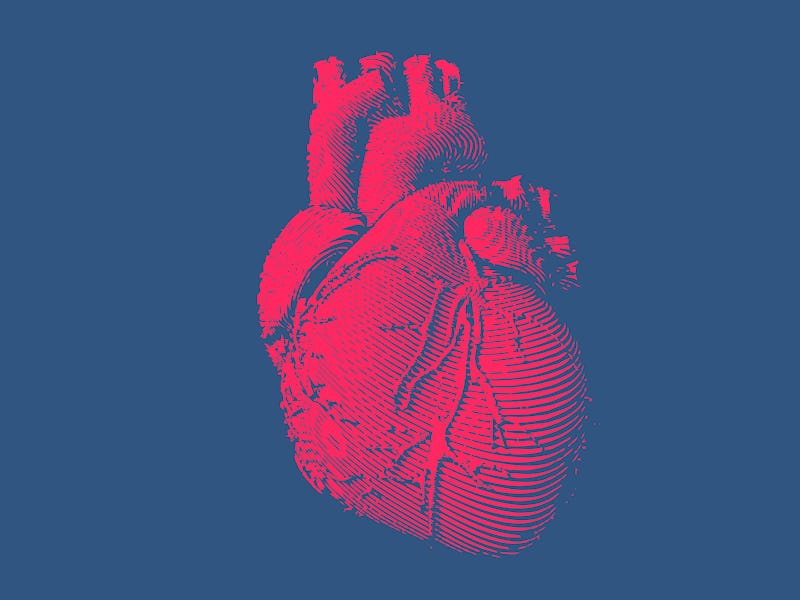First lab-grown heart cell transplant could change medicine forever
A clinical trial takes a crucial step forward.

Researchers in Japan did something on Monday, January 28th, that's never been done before. They were able to successfully transplant lab-grown heart muscle cells into a patient. The heart muscle cells were made using induced pluripotent stem cells, which are cells taken from the patient that have been reprogrammed to become stem cells that can develop into any type of cell found in the human body.
The heart muscle cells were put into degradable "muscle sheets" and used with the intent of helping repair damaged tissue. The patient who received the transplant was suffering from ischemic cardiomyopathy, a condition where heart muscles stop working properly due to clotted arteries.
The muscle sheets secrete a protein that will hopefully help the patient regenerate cardiac blood vessels. If things go as planned, this procedure could prevent patients from having to seek a full heart transplant. It's typically difficult to find a donor if you need a heart transplant, and the surgery involved is much more dangerous. Furthermore, since the cells that are used with this new method are your own cells, it's very unlikely your body will reject the transplant.
The patient is in good condition since the transplant, and these researchers hope to repeat this operation with nine more patients who suffer from the same condition over the next three years.
Osaka University professor Yoshiki Sawa, who was the lead researcher, said at a news conference that he sees the potential for the technique to become standardized across medicine.
“I hope that (the transplant) will become a medical technology that will save as many people as possible, as I’ve seen many lives that I couldn’t save,” Sawa said.
The patient that was involved in this transplant will be monitored for the next year to see how things progress. This research was done as part of a clinical trial that is ongoing.
If this transplant successfully heals the damaged tissue this patient is dealing with, it seems likely this technique could be used to help repair many other organs that have been damaged in some way. Instead of people having to rely on donors to get a transplant, they could just use their own cells to help themselves heal and extend their lifespan.
See also: In the 2020s, we'll be doing experiments on lab-grown brains
As we've reported before, using pluripotent stem cells is something that's become popular among those who are researching 3D-printing human organs. We've already been able to 3D-print small versions of human livers, brains and more with these cells. If you're suffering from a condition where an entirely new organ is necessary, then we may soon reach a point where a specialist can simply print you a new one so your old organ can be replaced. As with the muscle sheets, this would also help people avoid needing to seek out a donor, and the organ would most likely not be rejected by the patient's body.
We still don't know if this transplant is going to end up fixing this patient's heart problems, but if it does, we could be looking at a whole new era of how we deal with failing organs.